Swette Sustainable Food Systems
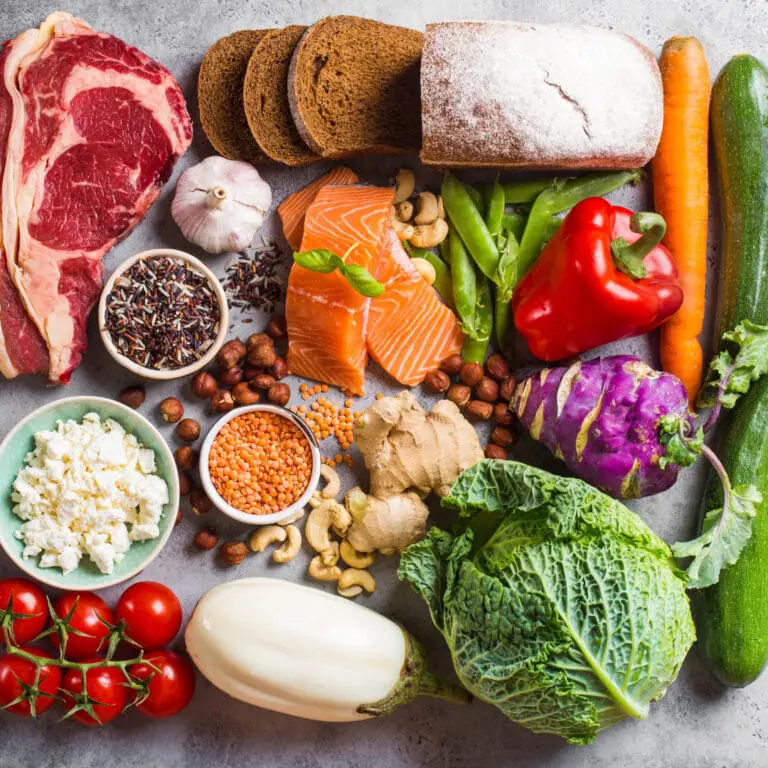
Mission nutrition with Kumar Chandran, USDA Senior Advisor
Our cohort was extremely fortunate to spend a week in Washington D.C. to learn more about the intricacies and complexities of policy making. We met with many varied stakeholders working within the policy sphere to learn about the impacts one can have and the many paths that can lead you there. One such individual that I was especially ecstatic to meet was Kumar Chandran.
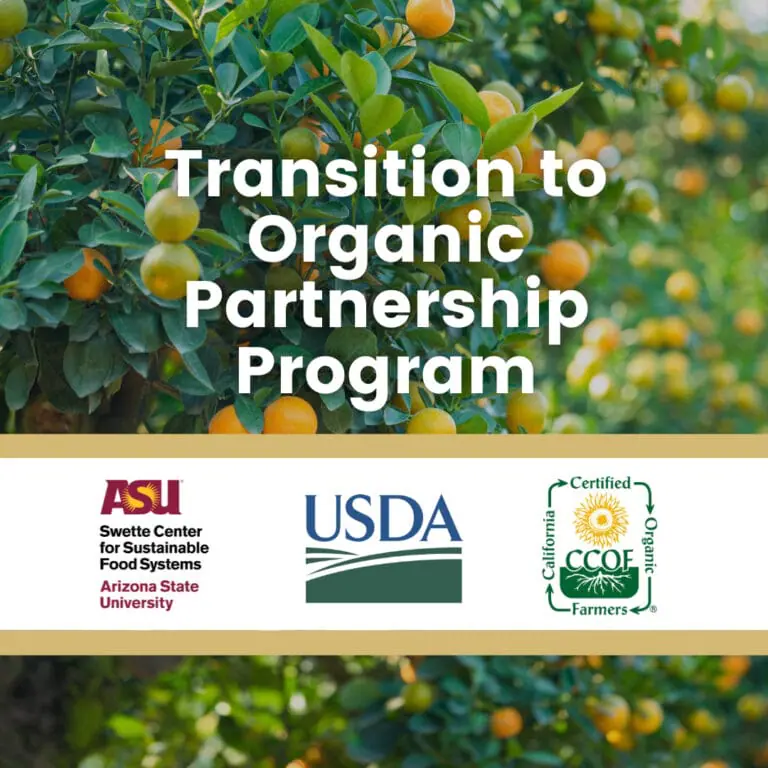
ASU Swette Center given lead role in USDA Program: $100 million to support transitioning and existing organic producers
As part of USDA’s $100 Million Dollar Transition to Organic Partnerships Program (TOPP), the ASU Swette Center for Sustainable Food Systems will serve as the state lead to support farmers
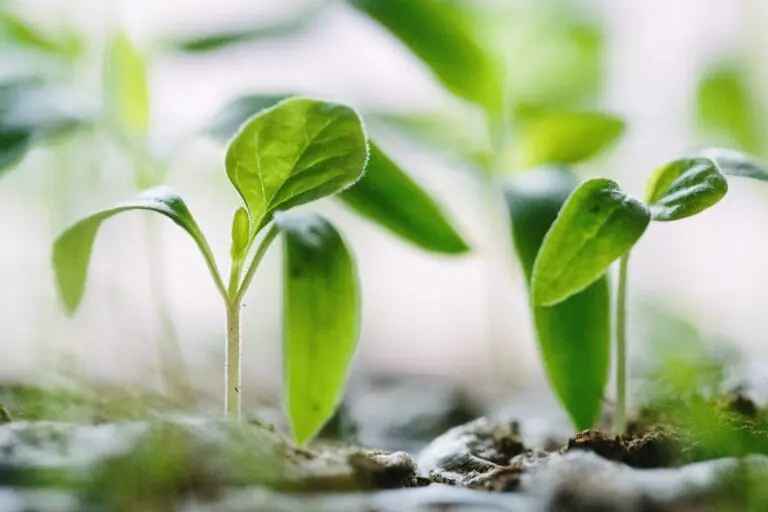
Student worker appreciation
Looking back on the 2022-23 school year, we would like to express our appreciation for our student workers and their valuable contributions to the Swette Center. Their creativity, vibrant personalities, and passion for sustainable food systems greatly enhance our team. We are pleased that they will continue to work with us this summer and during the upcoming school year!
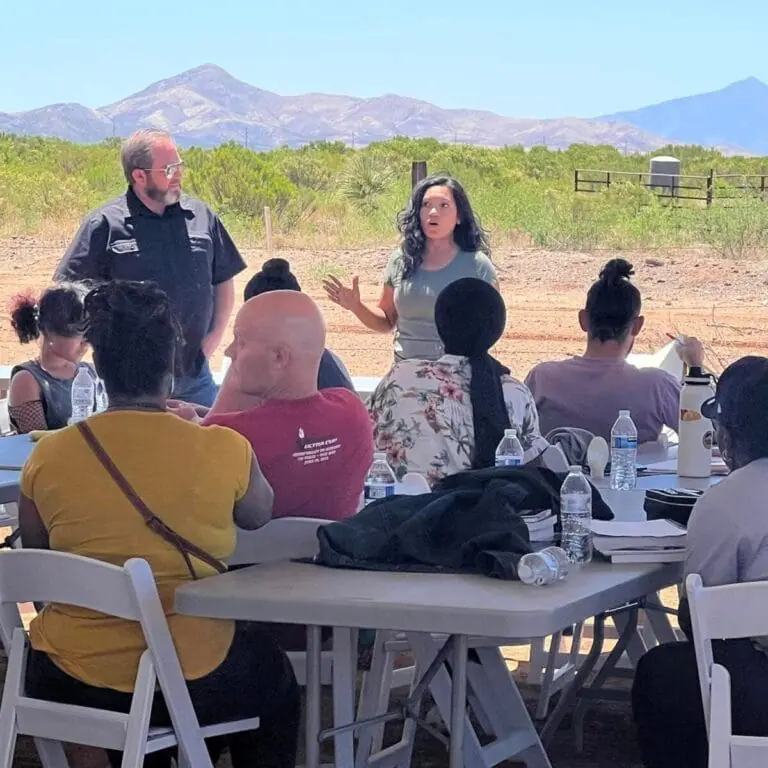
Reflections on a gathering for small minority food producers in Arizona
On May 6th, 2023, a windy and sunny spring day, I was excited to attend the 2nd Annual Small Minority Farmers and Ranchers Conference. The conference was hosted and led by Rachel and James Stewart, founders and owners of Southwest Black Ranchers of Douglas, Arizona.

Meet affiliated faculty Hamid Marvi
Read on for an interview with Hamid Marvi, Senior Global Futures Scientist and Associate Professor of Aerospace and Mechanical Engineering in the School for Engineering of Matter, Transport and Energy.
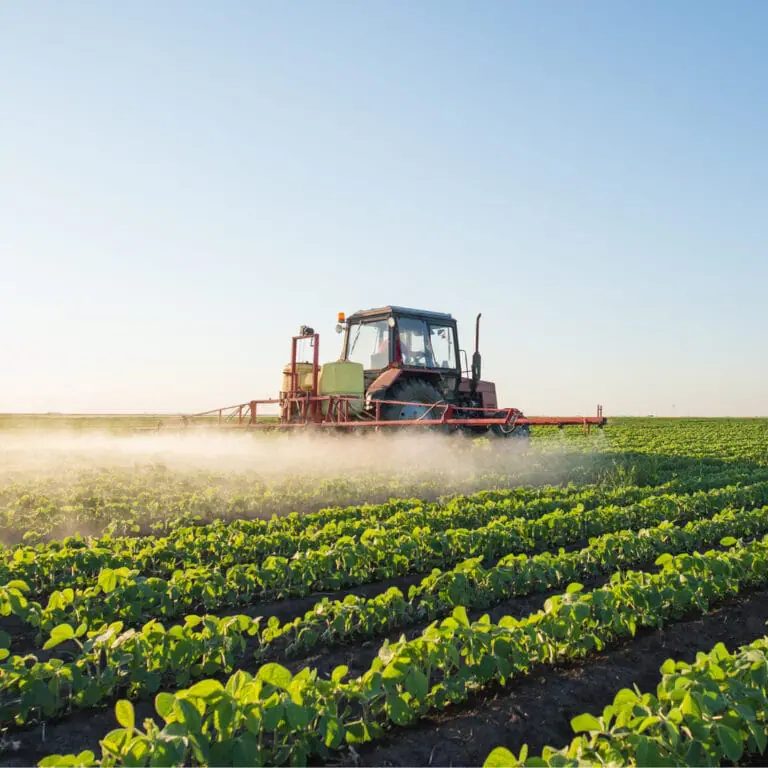
Takeaways of the 2022 Food and Farm Immersion
This blog captures the reflections and main takeaways of the Food and Farm Immersion course from a handful of students within this year's graduate cohort. The immersive is a key component of the curriculum for the Food Policy and Sustainability Leadership graduate certificate and the Sustainable Food Systems master's degree.
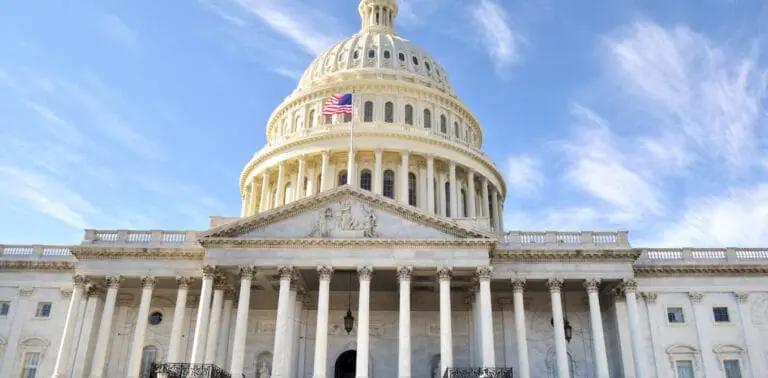
These four challenges will shape the next farm bill – and how the US eats
For the 20th time since 1933, Congress is writing a multiyear farm bill that will shape what kind of food U.S. farmers grow, how they raise it and how it gets to consumers. These measures are large, complex and expensive: The next farm bill is projected to cost taxpayers US$1.5 trillion over 10 years.

Public-private partnerships in food systems: How it’s done at the Yuma Center of Excellence for Desert Agriculture
The close of fall semester is busy with final exams and papers along with holiday travel plans for most students at Arizona State University. For sustainable food systems graduate students, the end of the semester kicks off Professor Merrigan’s favorite course: the Food and Farm Immersion.
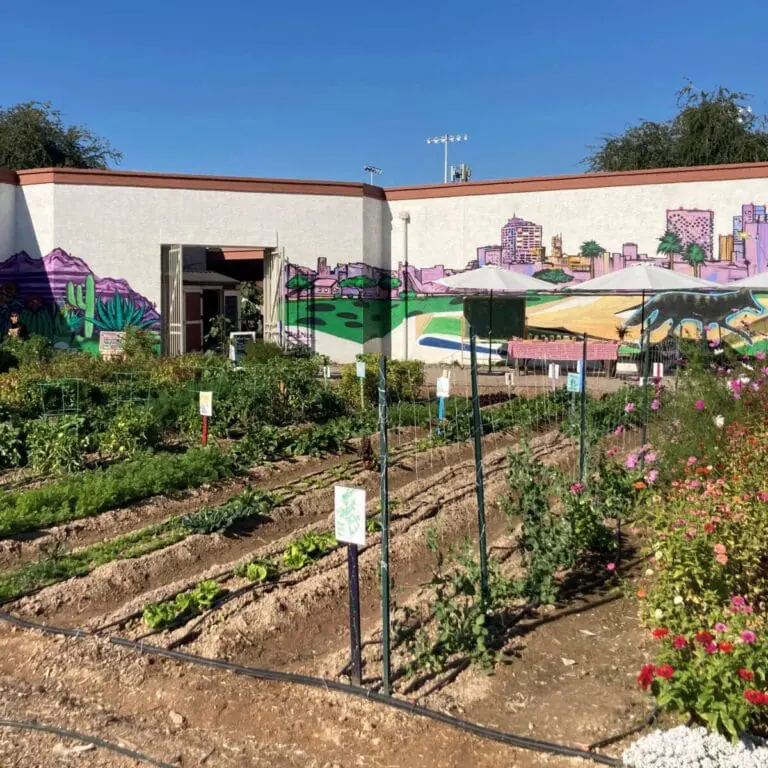
Pioneering farm to school
In December of 2022, Arizona State University Sustainable Food Systems Graduate Students had the opportunity to explore integral parts in food systems through a weeklong immersive experience across the state. Of these places, Garfield’s Garden on the Corner at Garfield Elementary School was a truly inspiring stop.
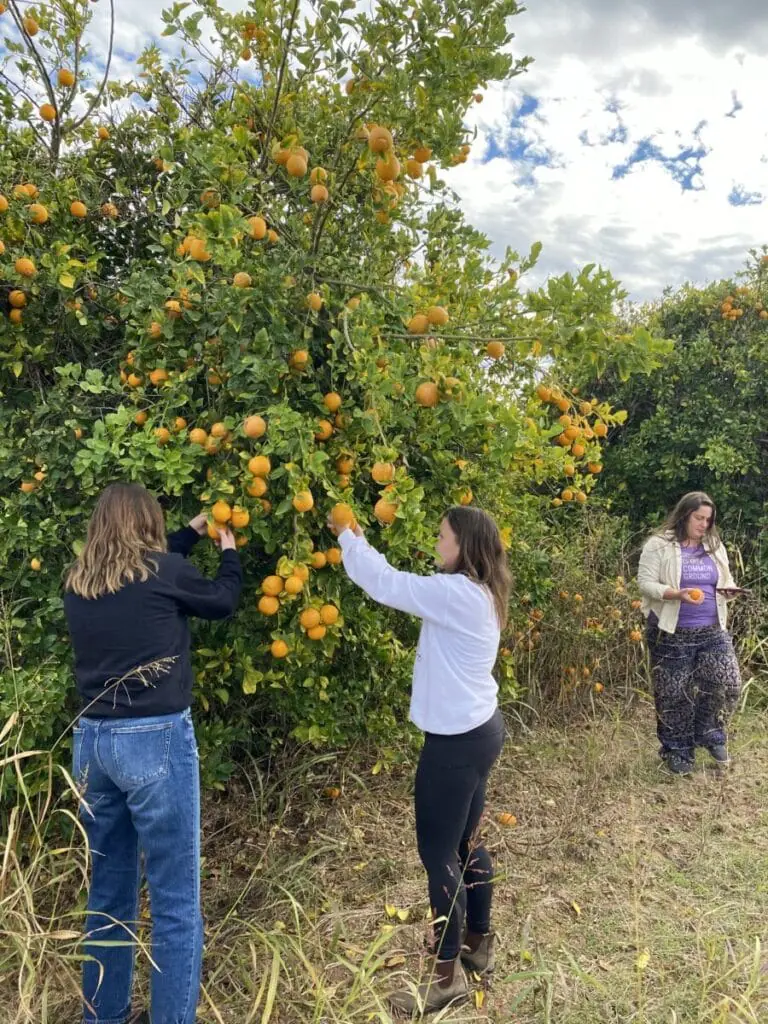
Land and community stewardship at Gila River Farms
A week-long immersive tour around diverse Arizona agricultural areas brought my classmates and I to Gila River Farms in Sacaton and Casa Blanca, Arizona. Covering almost 11,000 acres, Gila River Farms provides for the Gila River Indian Community by offering a wide range of food products and employment opportunities.

Searching for pests with USDA
This past fall, the ASU Sustainable Food Systems cohort visited the APHIS Plant Protection and Quarantine facility in Yuma, Arizona. APHIS is an agency within the United States Department of Agriculture that oversees and initiates response pertaining to animal health, animal welfare and plant health.

Returning to our roots at Hayden Flour Mills
Our ASU graduate cohort arrived at Hayden Flour Mills, our last stop of the second day on our Arizona food and farm immersion, as the sun was gently moving downwards towards the western horizon. It was peacefully quiet while we soaked in the ambiance and awaited our tour.